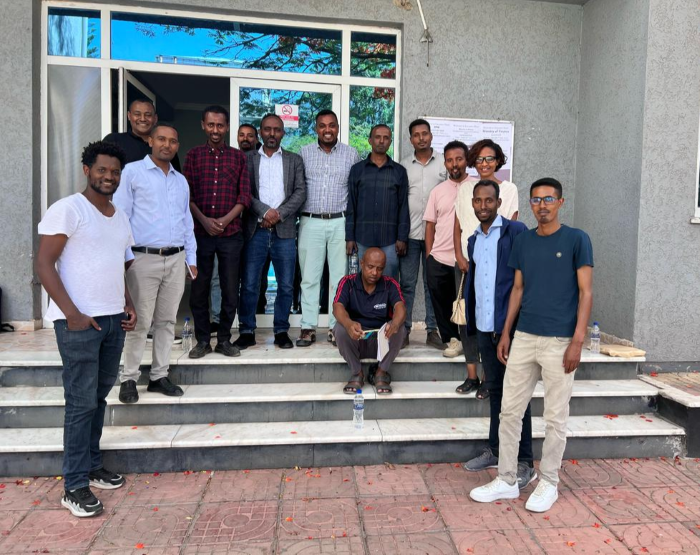Recognizing Mpox as a global threat, Ethiopia has taken proactive steps to prevent the spread of disease both inside the country and at its borders. Increased surveillance at entry points, enhancing the ability to diagnose Mpox and providing training to healthcare professionals to recognize and manage cases, has kept the disease at bay. Improving laboratory capabilities for the detection and prevention of the fast-spreading virus has been recognized as a key component of the national health response strategy and aligns with ongoing efforts to improve health security and surveillance systems nationwide.
The Global One Health initiative, in collaboration with the Ethiopian Public Health Institute, conducted Mpox molecular detection training to enhance the diagnostic skills of eight laboratory professionals from regional public health laboratories. By targeting the improvement of national preparedness for Mpox PCR testing, this training aims to strengthen surveillance efforts and equip laboratory personnel with critical skills necessary for accurate testing and laboratory safety protocols.
As a result of the training, laboratory staff will gain enhanced skills and resources to improve their diagnostic capabilities; improved laboratory capacity will lead to better health outcomes and timely responses to Mpox cases for patients and communities; strengthened surveillance and testing systems will aid in effectively managing public health threats; enhanced laboratory capabilities support compliance with international health regulations, thereby strengthening Ethiopia’s position in global health initiatives; and strong detection capacity in Ethiopia will help to control outbreaks without being pandemic threats.
These trainings are part of the broader U.S. Center for Disease Control and Prevention-funded project, "Advancing Ethiopia’s Capacity for Laboratory, Workforce Development, Surveillance, and Emergency Management to Meet International Health Regulation Requirements." The project is designed to enhance Ethiopia’s emergency response capabilities, improve health threat detection, strengthen diagnostic capacities and develop a skilled healthcare workforce. By investing in the training of laboratory professionals, the initiative seeks to address public health challenges associated with Mpox and other emerging global health threats effectively.
